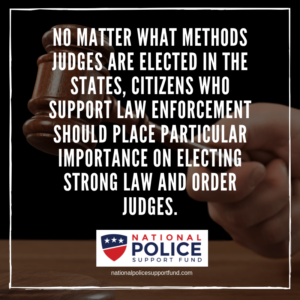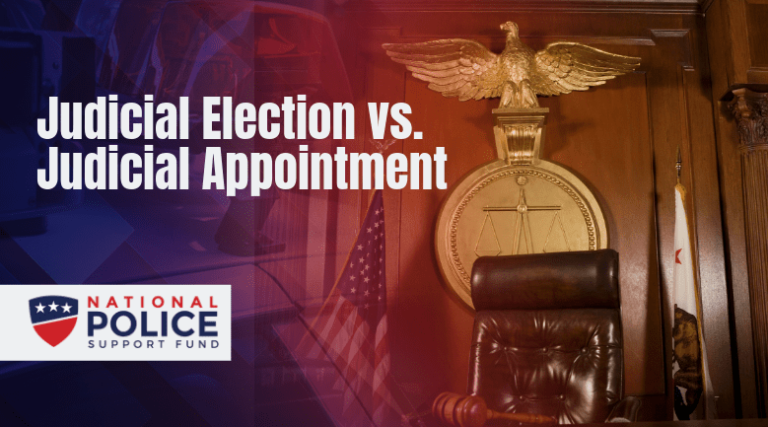In-depth we have covered the need for strong law and order judges. When judges issue lenient sentences to criminals, police are often forced to confront the same criminals again, thus putting them at more risk. Therefore, it is critically important for citizens to elect strong judges to help support our police officers. But when do we actually elect our judges and when are they appointed? Here are a few facts on judicial selection versus election.
Partisan and nonpartisan election of judges
One of the methods for electing judges in the states is by partisan election. States that use this method list the political party affiliation of the judge on the ballot. In total, 20 states use partisan elections to elect state supreme court and appellate judges. Of those 20 states, seven use this method to elect judges at all levels.

Thirteen states elect their supreme court justices in nonpartisan elections. In nonpartisan elections, candidates are not explicitly affiliated with a particular political party on the ballot. For lower court elections, 22 states use the nonpartisan method for elections.
It is important to note that methods by which judges are elected at the state level vary widely by state. People who are interested in learning exactly how their states elect judges are encouraged to research more on their state’s particular practices.
Gubernatorial appointment of judges
In nearly every state, governors appoint judges to fill vacancies at all levels of state courts. However, some states rely on gubernatorial appointments more than others. For example, New Jersey and Massachusetts operate under gubernatorial appointment for nearly all state courts. Other states use a combination of gubernatorial appointments and legislative consent. As is the case in the election of judges, the practice of judicial appointment varies widely by state. Generally speaking, however, when there is a midterm vacancy on a court, governors almost always appoint judges to serve out an unfinished term.
No matter how judges are elected in the states, citizens who support law enforcement should place particular importance on electing strong law and order judges. Police officers work tirelessly every day to clean up the streets and keep their communities safe. They need strong judges who are willing to ensure that criminals stay off the streets.









